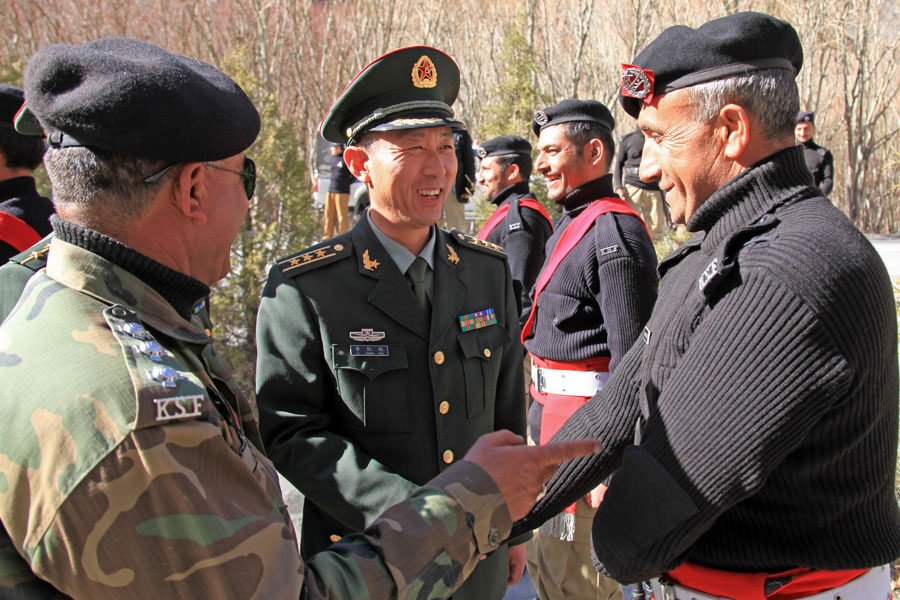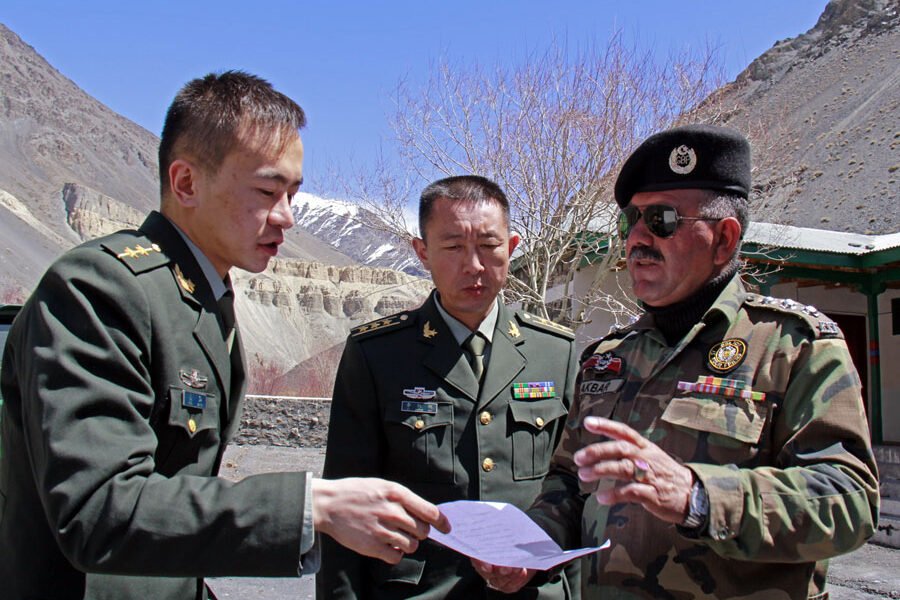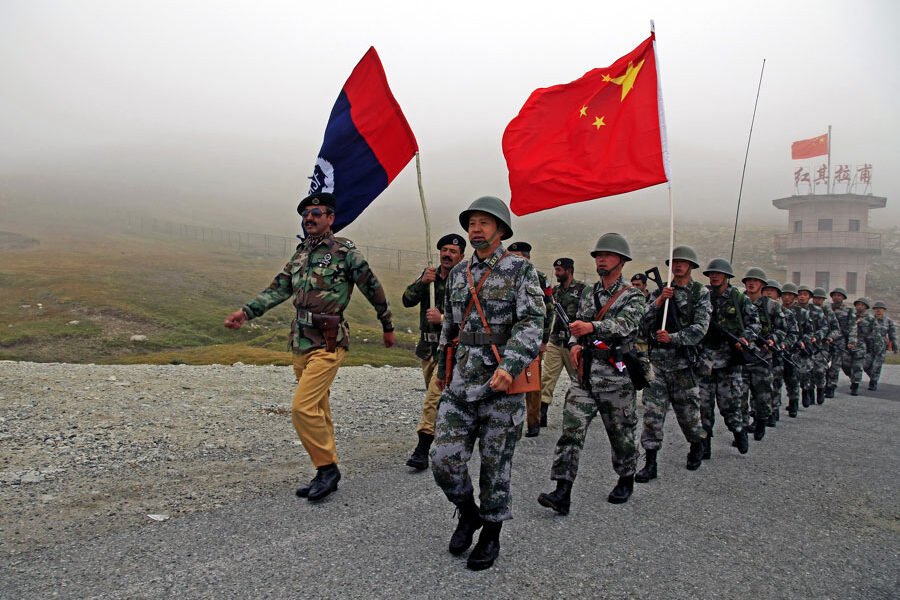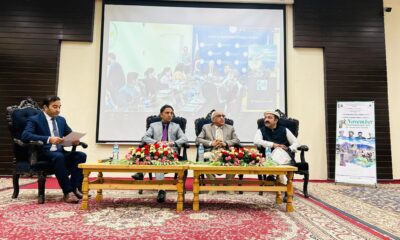CPEC
Gilgit-Baltistan Police to Receive training in Xinjiang to Boost CPEC Security and Trade
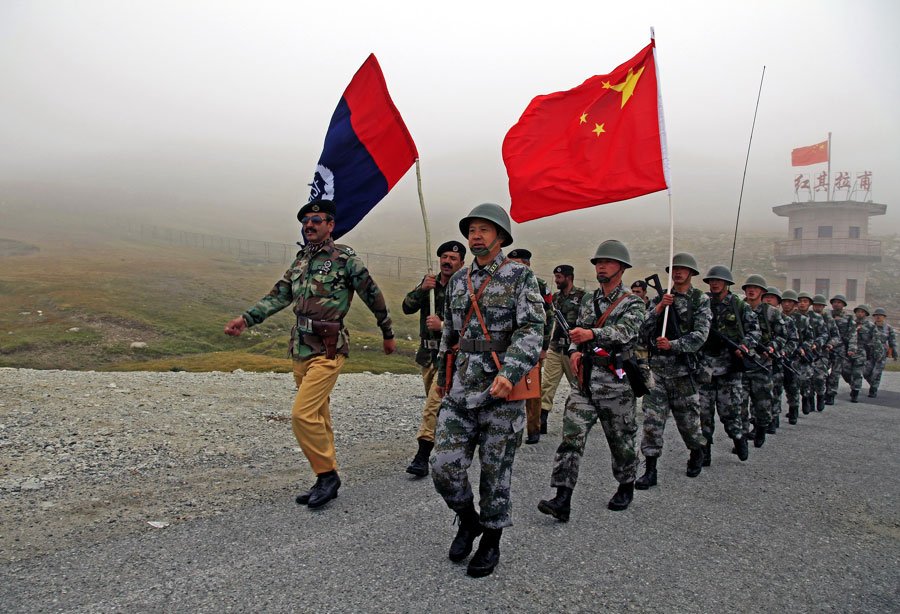
Both Gilgit-Baltistan and Xinjiang play critical roles in the success of the China-Pakistan Economic Corridor (CPEC). The CPEC offers significant economic opportunities for both Pakistan and China, but also presents security challenges.
Under a bilateral agreement between Pakistan and China, residents of Gilgit-Baltistan can travel to Xinjiang without obtaining a traditional visa. Instead, they require to obtain a special pass or permit. This visa-free arrangement has simplified travel and promoted economic exchange between the two regions.
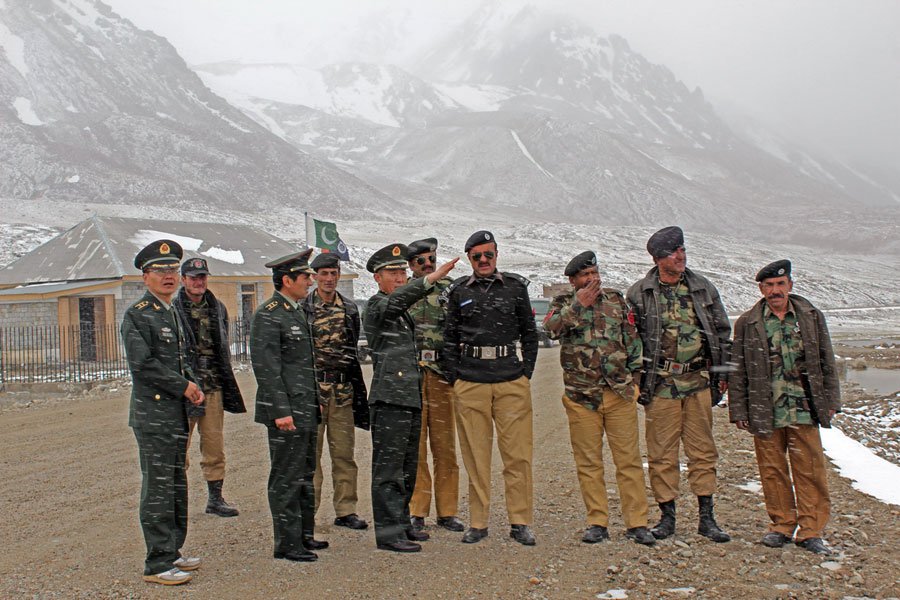
The trade route through Khunjerab Pass has witnessed considerable growth in recent years, thanks in part to improved border management and security measures. This has facilitated trade and reduced smuggling, leading to a positive impact on the economies of both Gilgit-Baltistan and Xinjiang.
The growing trade through Khunjerab Pass has also created new opportunities for the people of Gilgit-Baltistan. With the increased economic activity and improved infrastructure, there is a growing demand for goods and services in the region. This has led to a surge in business opportunities for local entrepreneurs and traders.
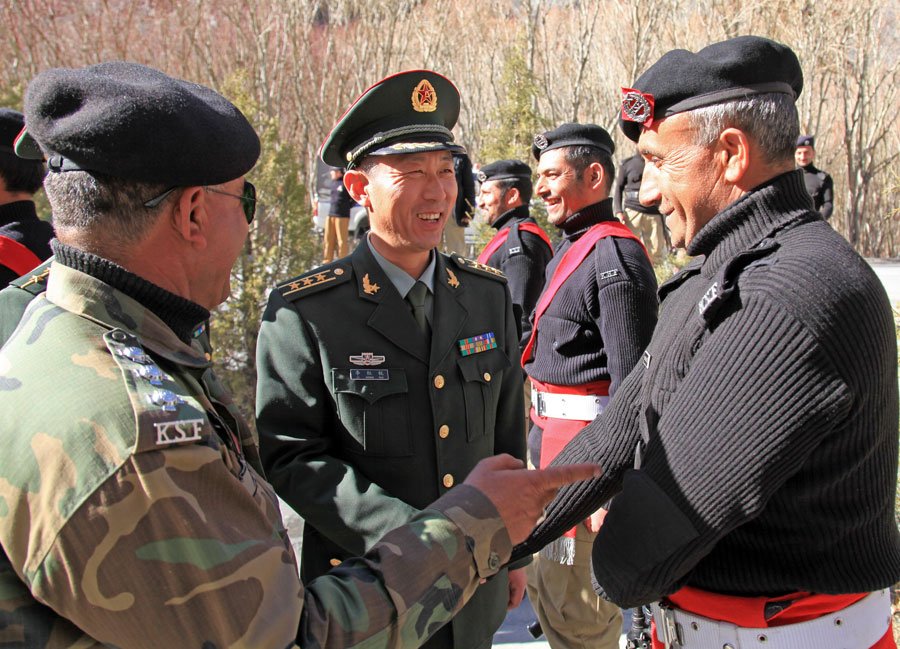
On Saturday, Interior Minister Mohsin Naqvi met with a Chinese delegation led by Minister for Political and Legal Affairs Chen Mingguo. During the meeting, it was agreed to enhance cooperation in various fields, including counter-terrorism, cross-border cooperation through Khunjerab Pass, anti-smuggling, and anti-narcotics efforts. Pakistan-China relations, particularly with Xinjiang, and matters of mutual interest were discussed. It was agreed to conduct joint police and paramilitary forces exercises in either Gilgit-Baltistan or Xinjiang and to train Gilgit-Baltistan police officers at the Xinjiang Police Academy.
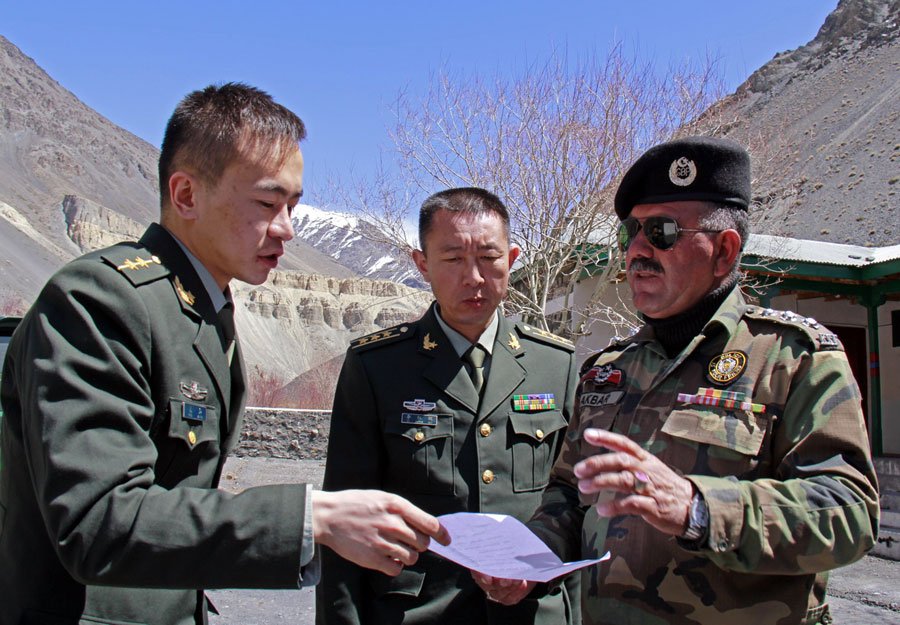
While talking to The Karakoram, Dr. Faqeer Muhammad, Director of the China Study Centre at KIU G-B said, investing in joint police trainings will strengthen security cooperation and create a more stable environment for the implementation of CPEC. These trainings will help to address the security challenges facing the corridor and ensure its long-term success.
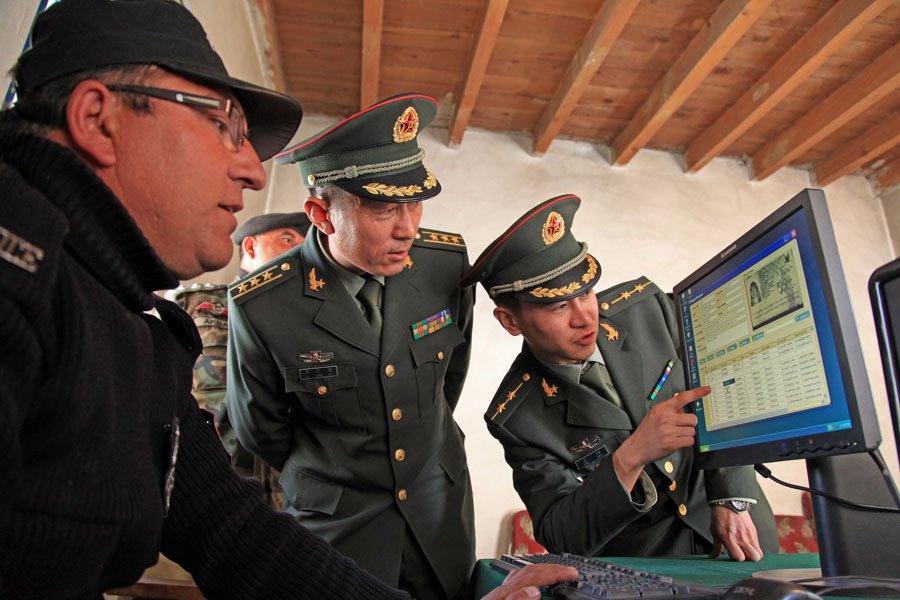
DIG Police Gilgit-Baltistan, Sultan Faisal, said joint trainings will improve communication and cooperation between the security forces of both Gilgit-Baltistan and Xinjiang. By training together, police officers will develop a shared understanding of each other’s procedures, equipment, and tactics. This will help to strengthen bilateral security cooperation and make it more effective.

As the CPEC continues to evolve, the need for strong security cooperation between Pakistan and China becomes increasingly important. By investing in joint police trainings and other security initiatives, both countries can address the challenges facing CPEC and ensure its long-term success.
CPEC
Poor Winter Maintenance of KKH Risks CPEC All-Weather Trade
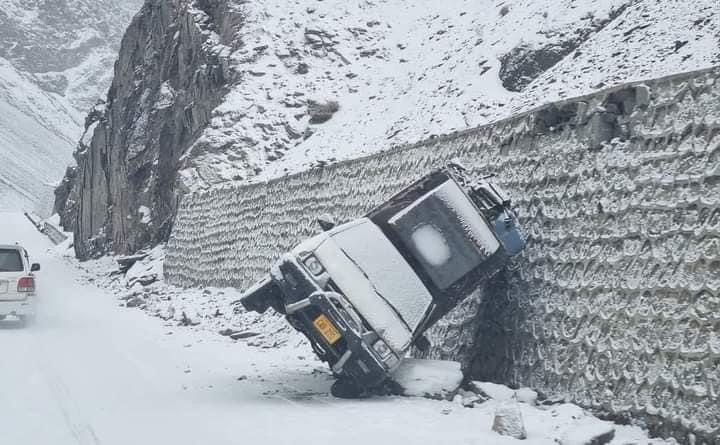
The Karakoram Highway (KKH), a vital lifeline for trade between Pakistan and China under the China-Pakistan Economic Corridor (CPEC), faces critical challenges each winter due to negligent maintenance. Connecting the two nations through the Khunjerab Pass—at over 4,693 meters (15,397 feet) above sea level—this strategic route is central to trade and regional economic integration. The pass connects Gilgit-Baltistan with China’s Xinjiang region and was reopened after closing for almost three years in April 2023. The land border was closed in 2020 after the outbreak of COVID-19. However, when heavy snowfalls hit, KKH becomes treacherous, risking the disruption of trade and the economic ties vital to both countries.
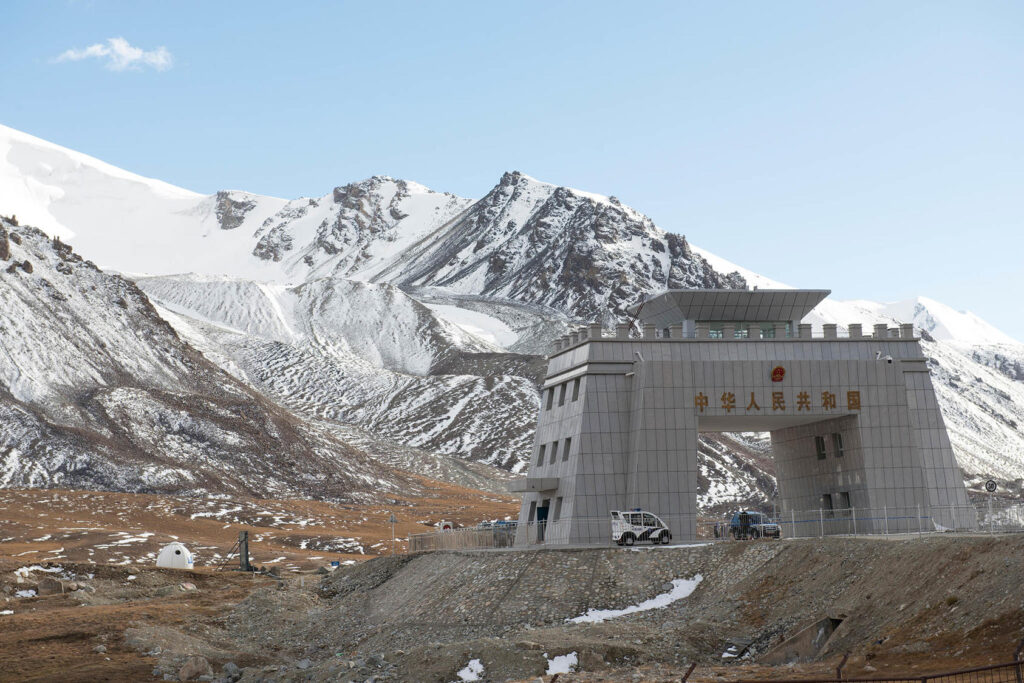
The KKH, a pivotal component of CPEC, facilitates the movement of goods and strengthens economic ties between Pakistan and China. Its year-round functionality is crucial for trade. Yet, the lack of timely snow clearance and road maintenance is disrupting the route, undermining the goals of CPEC.
Despite past agreements aimed at transforming the KKH into an all-weather route, meaningful execution has been lacking. This year, authorities have announced plans to finally implement measures to ensure year-round connectivity. However, the existing state of road maintenance raises doubts about their effectiveness and commitment.
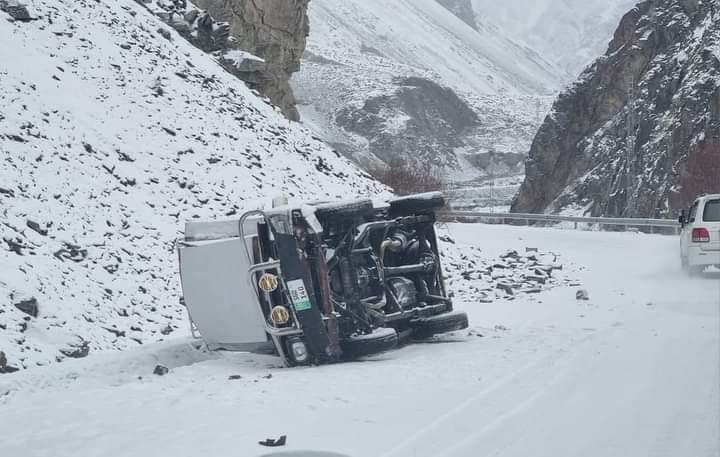
For Aman Ullah, a resident and trader from Gojal, Hunza, the snowbound Karakoram Highway is more than just an inconvenience—it’s a daily struggle that threatens his livelihood. “We are often left stranded for days, with no way to continue our trade,” he shared with The Karakoram.
Aman explained, “A few years ago, the Chinese government donated four state-of-the-art snow-clearing machines to the FWO for winter maintenance of the Khunjerab Border and nearby sections of the KKH. These advanced machines, equipped with computerized systems, were intended to ensure safe travel and uninterrupted trade. However, only one of these machines remains operational today, and even that is reportedly in poor condition. Instead of effectively clearing the snow, it often leaves the road even worse, making travel difficult. The fate of the other three machines remains unknown, raising serious concerns about mismanagement and a lack of accountability.”

The poor state of snow clearing operations has caused a worrying rise in road accidents, Tufail Ahmed, the owner of a transport company whose vehicles frequently travel to China via the KKH, shared his frustrations. Stranded vehicles have become a common sight, with travelers risking their lives in freezing temperatures,” he said.
Abdur Rehman, an import-export trader from Gilgit-Baltistan, highlighted the contrast between the two sides, adding, “In stark contrast, the Chinese side of the Khunjerab Pass ensures the road remains well-maintained and operational during winter. Advanced machinery and a proactive approach demonstrate their commitment to maintaining seamless connectivity. This disparity reflects poorly on Pakistan’s preparedness and raises questions about the efficiency of NHA and FWO.”
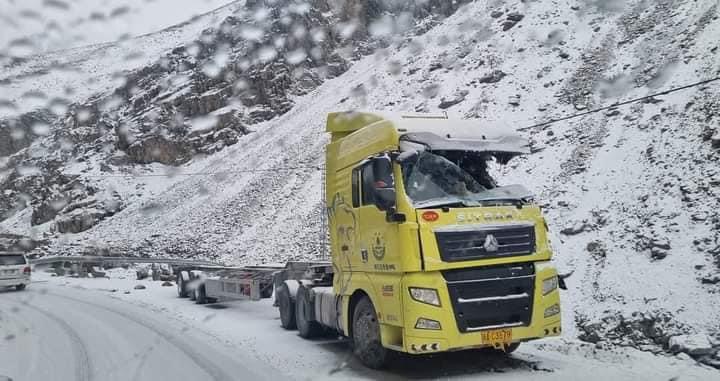
Dr. Faqeer Muhammad, Director of the China Study Centre in Gilgit-Baltistan, emphasized the broader implications, stating, “The KKH is more than just a road—it’s a vital trade corridor that plays a key role in China’s Belt and Road Initiative (BRI); it is a symbol of connectivity, trade, and opportunity. Neglecting its maintenance during winter risks undermining Pakistan’s economic and strategic interests, calling for immediate attention from the authorities.” Its maintenance is critical not just for trade but for the broader economic and strategic objectives of CPEC.

This neglect not only puts lives in danger but also hampers trade activities, creating significant bottlenecks for transportation linked to CPEC.
Residents and stakeholders are demanding urgent action to address these issues. Effective utilization of resources, transparent accountability for the missing machinery, and better coordination between authorities are imperative. Maintaining the KKH as a safe and reliable trade route is not just a regional necessity; it is a cornerstone of CPEC and a matter of national importance.
CPEC
Documentary on Karakoram Highway (KKH) and CPEC
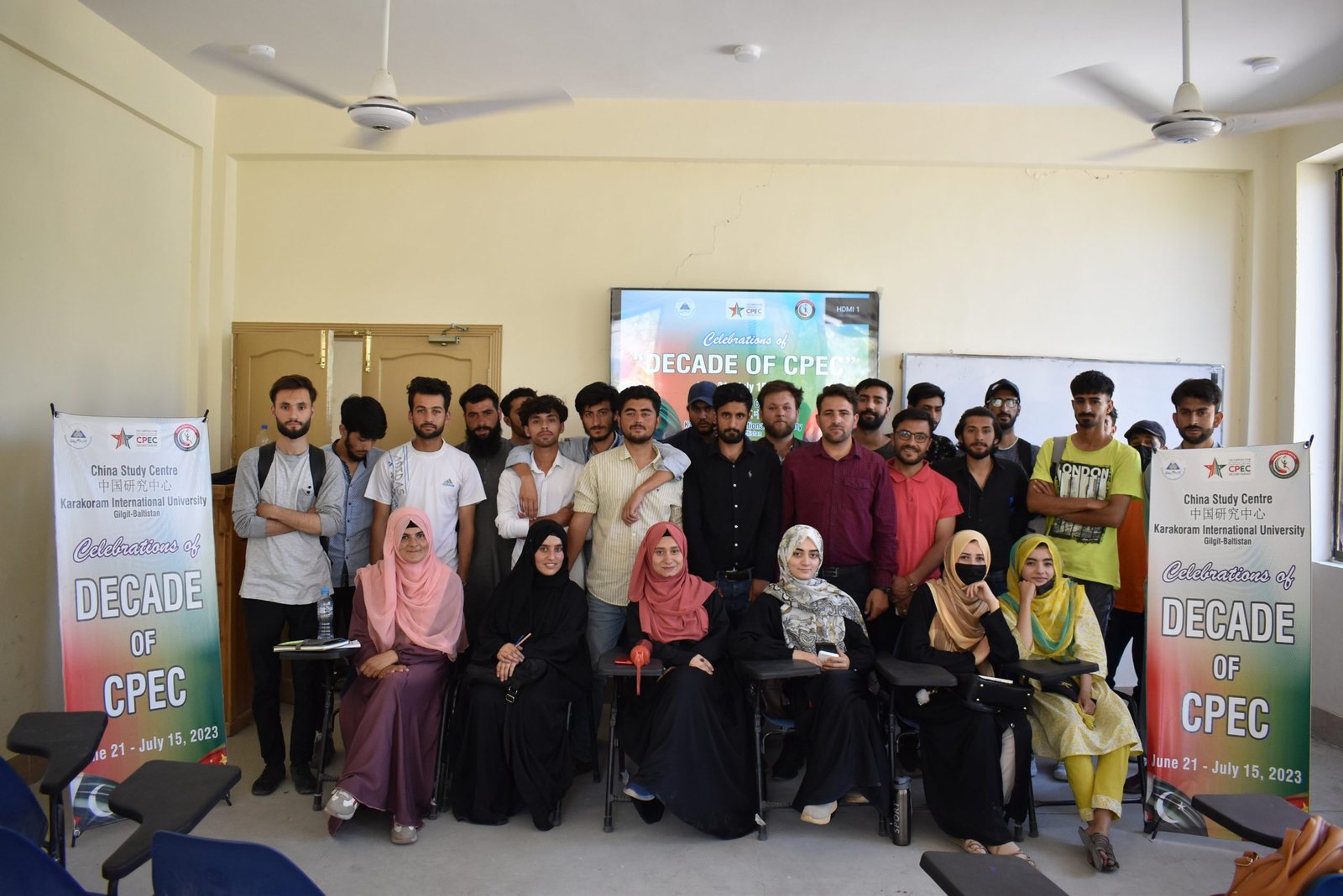
The China Study Centre organized a “Documentary on Karakoram Highway and CPEC” for the Chinese language students on June 22, 2023, at KIU main Campus.
The main objective of the event was to provide information and awareness about the importance of CPEC and KKH. The Karakoram Highway (KKH) and the China-Pakistan Economic Corridor (CPEC) are very important for improving communication, economic growth, and political security in the area. The KKH, which is often called the “Eighth Wonder of the World,” connects Pakistan and China by going through the beautiful Karakoram Mountain range. It makes trade and travel easier, and it also lets people from the two countries share their cultures. Also, the KKH is a key part of China’s main Belt and Road Initiative (BRI) project, the CPEC, which is being built. The goal of the CPEC is to improve communication, infrastructure, energy, and industry cooperation. This will create economic chances and help people in both countries live better lives. The KKH and CPEC support security, peace, and wealth in the area by making trade and regional unity stronger. They also help strengthen political ties between Pakistan and China.
CPEC
Cheque Distribution Ceremony of China-Pakistan Friendship Ambassadorial Merit-Cum-Need Scholarship
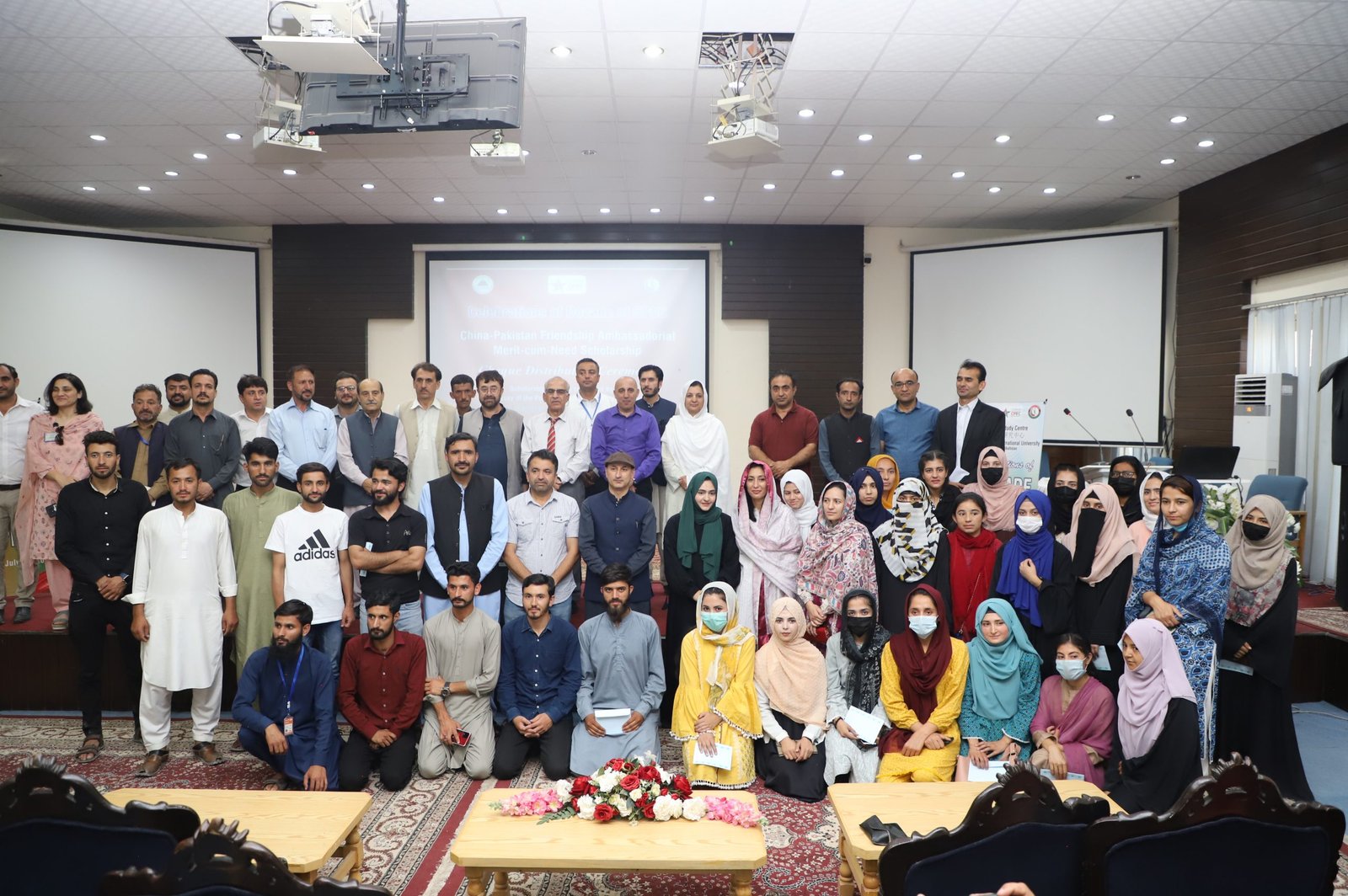
The China Study Centre (CSC) at Karakoram International University organized a cheque distribution ceremony for the “China-Pakistan Friendship Ambassadorial Merit-Cum-Need Scholarship” on June 20, 2023. The scholarship is generously funded by the Embassy of the People’s Republic of China in Pakistan. This event was largely participated in by the scholarship awardees, KIU Leadership, Faculty, and management staff.
Honorable Vice Chancellor Engr. Prof. Dr. Attaullah Shah acknowledged the support of the Embassy of the People’s Republic of China in Pakistan for the promotion of quality higher education and programs across Pakistan. He said that students should take advantage of these opportunities and learn as much as possible, keeping in mind the requirements of the modern era. He emphasized the importance of studying, considering the challenges faced in the present era, so that students can play a role in eliminating these challenges. He suggested that the scholarship should be spent on fulfilling educational needs and further improving performance, ensuring that the purpose of the scholarship is fulfilled. The Vice-Chancellor expressed special thanks to the Chinese Embassy for providing the Pakistan-China Friendship Ambassadorial Merit Scholarship exclusively for the students at Karakoram International University, aimed at promoting higher education and research.
Through this scholarship, a total of 130 scholarships have been awarded on merit to students at the main campus and sub-campuses – Diamer, Ghizer, and Hunza. There were 80 grants, including undergraduate and graduate programs at the main campus, while a total number of 20 grants were appropriated for the KIU Diamer campus, 15 grants for the KIU Hunza campus, and 15 grants for KIU Ghizer.
-

 Tourism3 years ago
Tourism3 years ago15 Best Places to Visit in Skardu
-

 Arts, Culture & Heritage2 years ago
Arts, Culture & Heritage2 years agoTraditional women’s dresses of Gilgit-Baltistan
-

 KIU Corner2 years ago
KIU Corner2 years agoA Guide to LMS KIU Student Login – KIU
-
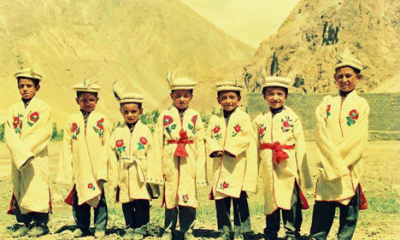
 Arts, Culture & Heritage2 years ago
Arts, Culture & Heritage2 years agoShuqa Simple but amazing winter clothing of Gilgit-Baltistan
-

 KIU Corner2 years ago
KIU Corner2 years agoEmbracing Challenges: Gul Rukhsar’s Remarkable Journey
-

 Arts, Culture & Heritage3 years ago
Arts, Culture & Heritage3 years agoQuroot: A Nutritious and Flavorful Staple of Gilgit-Baltistan’s Cuisine
-
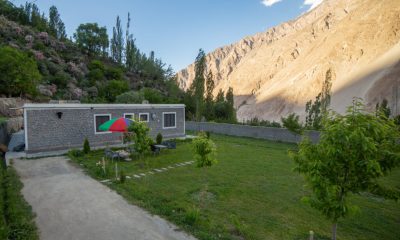
 Arts, Culture & Heritage2 years ago
Arts, Culture & Heritage2 years agoTraditional houses Gilgit-Baltistan
-
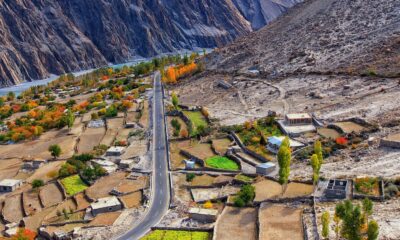
 Tourism2 years ago
Tourism2 years agoDiscover the Unparalleled Beauty and Culture of Gilgit-Baltistan

